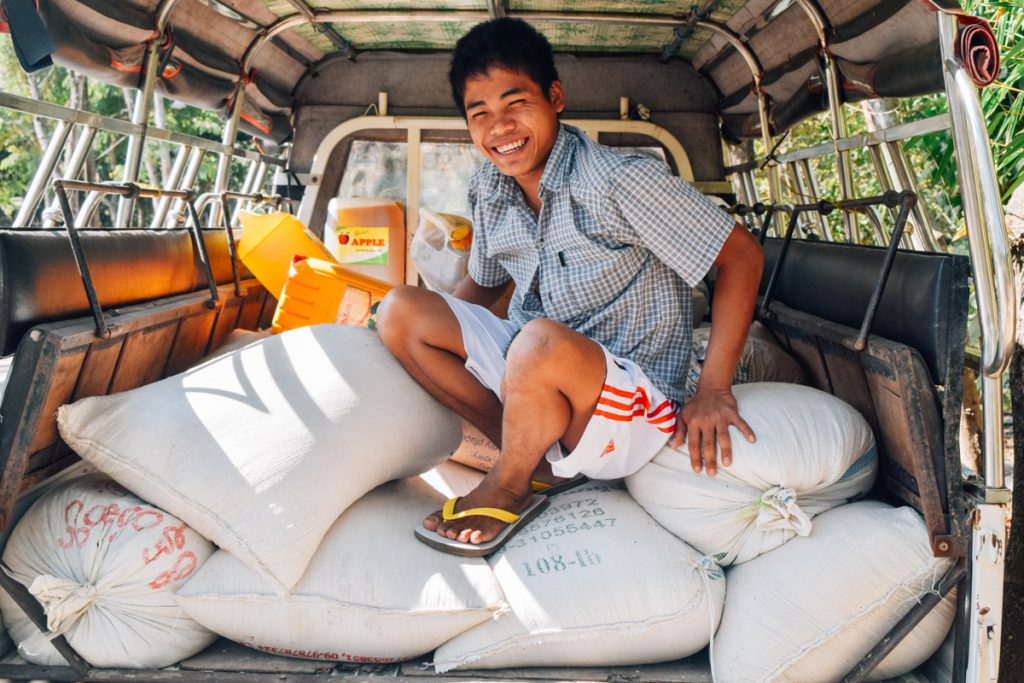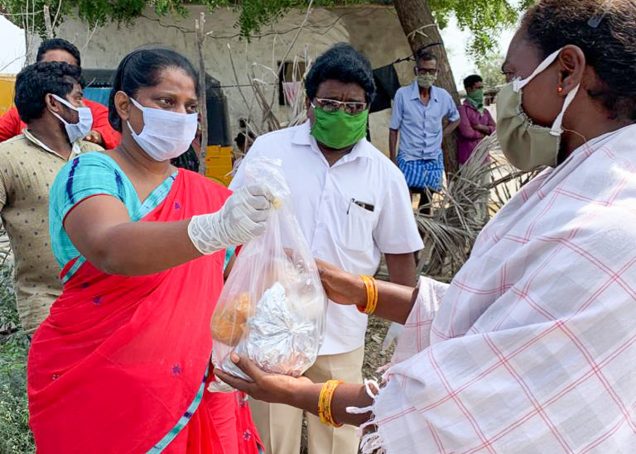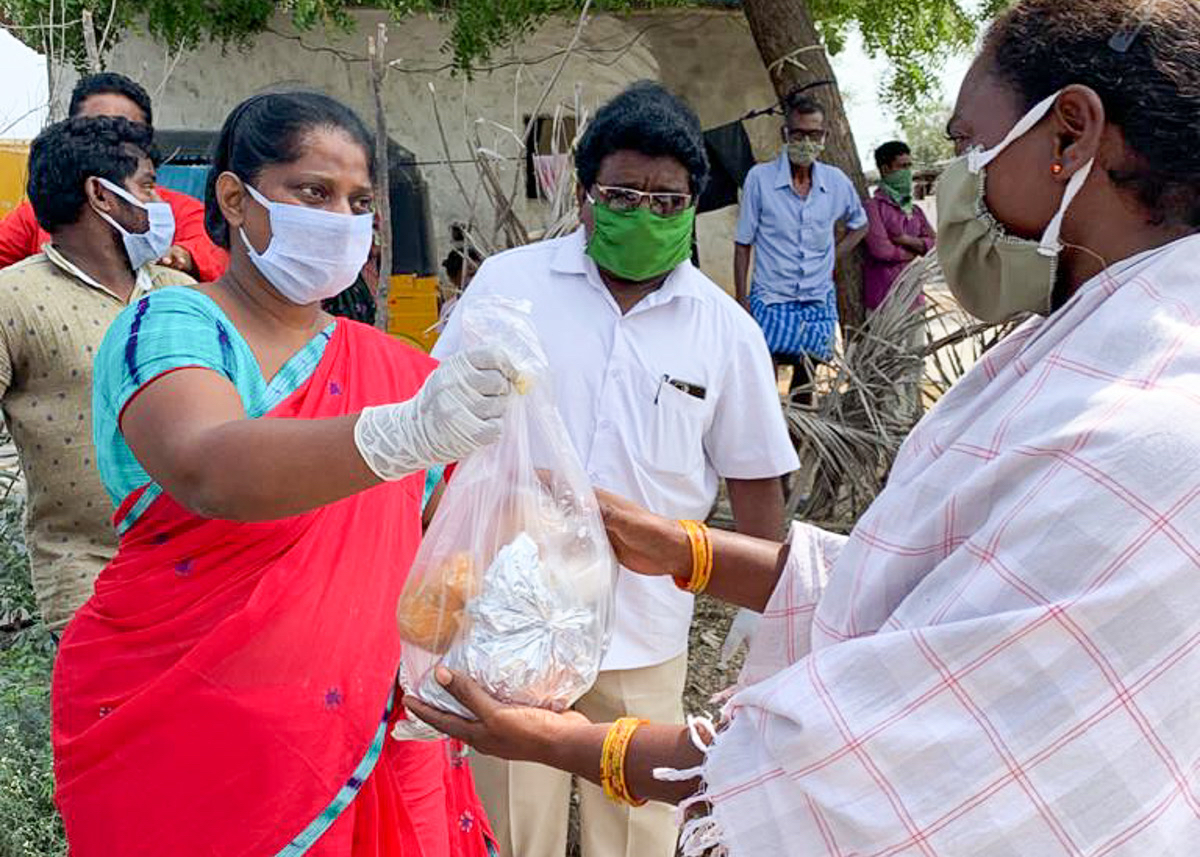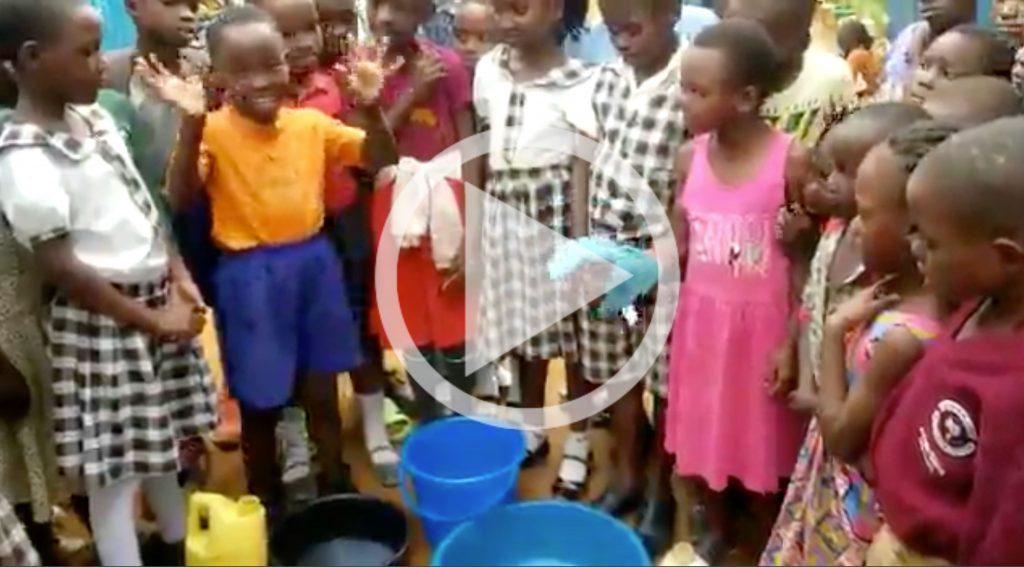Photo: Thanks to early preparatory action in February along with existing farmland stockpiles, we are now in a position to serve the poor and frontline workers in India and other nations.
The following is an update from our Founder & Executive Director, Kirby Trapolino, regarding our response to the COVID-19 crisis:
I hope you, your family members, and local community are all faring well during this very challenging time.
I wanted to bring you an update on what we’ve been doing to address the COVID-19 crisis at our program sites and in the communities where we serve in Asia and Africa, along with some of my concerns for the developing world moving forward.
But first, I’m happy to report that all of the 1,151 children and 107 staff under our care are safe and well provided for at this time.
In our February governing board meeting we resolved that the threat was real and we should act to mobilize our teams in preparation for worst-case scenarios.
In late February we held a handwashing seminar competition among our teams to share their best ideas on how to properly train our children and community members on best practices as recommended by the World Health Organization on handwashing and hygiene.
We are proud of our Kampala, Uganda team for winning the competition with this wonderful video, but all of our teams did a great job.
Furthermore, we instructed our teams to secure existing dry goods stockpiles at our farmlands, and to stock up on other staples not grown on farmlands or gardening projects with the goal of a 60-day food supply at each location.
Thanks to your generosity, funds were in place and we were ready to act.
We are very thankful that our teams followed our instructions as in the case of Uganda and India, it has become very difficult to find open markets, and where they are open in many cases food costs have already doubled.
Because we also instructed our teams to stock up on cleaning supplies and soaps, we have been able to distribute some of these key items to families of our program beneficiaries in certain areas where allowed. In India, this looks like beneficiaries coming to our distribution points one by one— authorities will allow solo excursions to obtain basic groceries.
The local Indian government authorities have officially asked for our help in facilitating food distribution.
Using the surplus from our existing food stocks, our India team is preparing lunches for frontline workers such as police, nurses and doctors and finding a warm reception to such gestures.
Our India Director, Samson, reports:
Poor families are really struggling. Just today at noon we called one of our girl student’s mother and told her to visit us and take rice and vegetables, onions, oil, etc. and when I told her this, she wept, and said ‘Sir, we did not eat for two days, no money to buy rice, I could not feed my child also, this is a miracle sir, thank you…’
Many families are facing similar situations, they are struggling a lot in this lockdown time. Another mother said that she does not have money to buy her medicine for diabetes and high blood pressure, and many reports we are getting like this.
In Uganda, our seamstress graduates are learning to make protective masks using available materials.
Our rural medical clinic in Uganda is not prepared to treat COVID-19 positive patients but is teaching local community members on the importance of proper handwashing techniques as well as providing soap. Many individuals in remote rural communities where we operate such as Nepal, India, and Uganda either do not have access to soap or cannot afford it.
It is common belief in such communities that simply rinsing hands with water is enough.
Since late February, our teams have been working hard to teach these local populations the importance of washing hands for 20 seconds with soap.
Now most of these workshops have been curtailed due to lockdowns occurring nationwide in Nepal, India, Myanmar, Uganda, and the Philippines. But we are proud of our teams for acting early and fast before the lockdown measures were enacted.
Our teams’ farmlands and gardening projects put them in a strong position with staple foods stockpiles.

Now our attention turns to the economic crisis that is rapidly unfolding in the countries where we serve.
I am very concerned.
It is my personal belief that while the social distancing and lockdown measures are effective in slowing the spread of the virus, what we are about to see is a tsunami of collateral damage from the adverse economic domino effect resulting from these measures.
In these communities and cultures where we work, the vast majority of society—hundreds of millions of people— live day to day on day-laborer wages that actually get paid out in cash on a daily basis.
Now that is cut off and entire economies are coming to a screeching halt.
Suddenly, food prices in many of the areas where we work are doubling and millions of people in these countries are unable to buy food, running out of what little they had from their last visit to the market.
It reminds me of the 2015 Nepal earthquake and the resulting chaos that ensued the year after.
The number of people thrown below the poverty line (already an extreme line) broke records, and thus concurrently desperation reached a high as well. Traffickers took advantage of the desperation and swarmed the broken country at an alarming rate. Their unfortunate success in luring girls with false promises of jobs only to become slaves in India and other countries reached abhorrent levels.
If the Nepal earthquake is any indication of what can happen during a much smaller crisis compared to COVID-19, we are bracing for the worst.
While we do not have any idea of how bad it will get, after ministering to slavery survivors for 27 years, we are not naive to how dark it can get when poverty becomes more extreme and victims become more vulnerable.
Thus they need your support now more than ever.
Many fundraising events, including our own, are being canceled and postponed.
But injustice is not taking a break.
We need to stand ready to continue to fight it with everything we have.
I know that for many of you, you are facing your own personal crises with losses of jobs and closures of small businesses. As you are able, I am so grateful for your continued generosity which is allowing us to maintain our critical support of the hundreds of orphans and trafficking survivors under our care.
Thanks to you, they remain safe, well-fed, and loved.
As the Pope shared in his message this past Sunday, there is a “contagion of hope” and we are catching it too— because we know you stand with us in this struggle.
With gratitude,
Kirby
Founder & Director
Peace Gospel
She Has Hope
Take Action: sign up for a monthly donation to help sustain our programs | donate your virtual spare change to make real change — register with our RoundUp account



